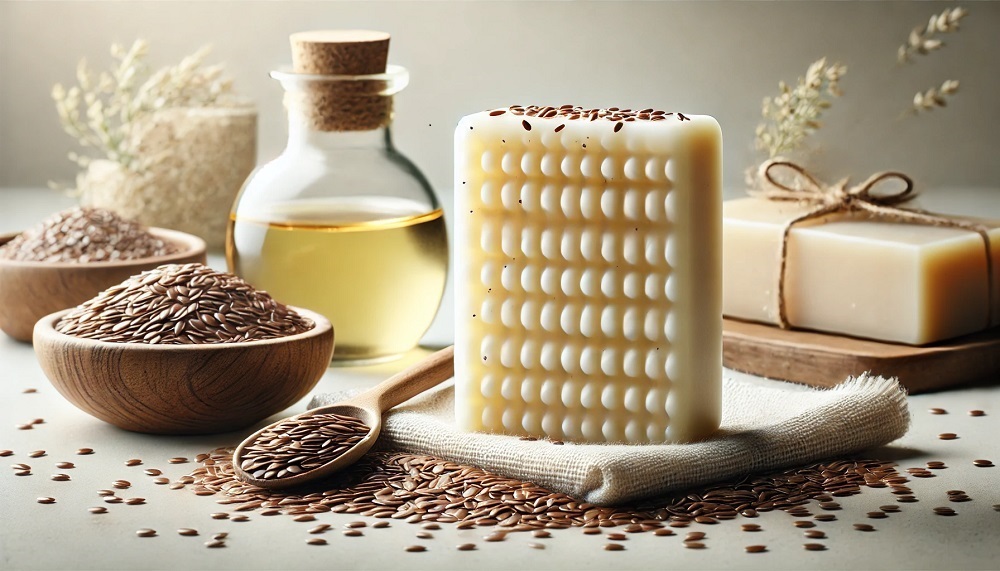Linolenic Fatty Acids in Soap: Skin Benefits and Moisturizing Power

Linolenic Fatty Acids in Soap: In the world of soap-making, various fatty acids are used to enhance the quality of soap and provide skin care benefits. One of the most important fatty acids used in soap is Linolenic Fatty Acid. This fatty acid helps maintain skin hydration, prevents dryness, and keeps the skin soft and smooth. Linolenic acid is primarily sourced from oils like flaxseed oil, soybean oil, and other vegetable oils. In this blog, we will discuss the benefits, sources, and significance of Linolenic Fatty Acid in soap formulations.
বাংলা পোস্ট
What is Linolenic Fatty Acid?
Linolenic Fatty Acid is a polyunsaturated fatty acid that is commonly found in flaxseed oil and other vegetable oils. It plays a crucial role in keeping the skin moisturized and protecting the skin’s natural barrier. Linolenic acid is known for its ability to reduce inflammation and strengthen the skin’s protective layer, making it an essential ingredient for maintaining healthy, smooth, and hydrated skin.
Why is Linolenic Fatty Acid Important?
Linolenic Fatty Acid provides multiple skin benefits and plays a key role in moisturizing and protecting the skin. Here are some of its major benefits:
- Moisture Retention:
- Linolenic acid helps lock in the skin’s natural moisture, preventing it from drying out and keeping it hydrated throughout the day.
- Reduces Skin Inflammation:
- It is highly effective in reducing inflammation, making it ideal for sensitive or irritated skin.
- Strengthens Skin Barrier:
- Linolenic fatty acids help strengthen the skin’s lipid barrier, which protects the skin from environmental damage and pollutants.
- Softens and Smoothens Skin:
- This fatty acid ensures that the skin stays soft and smooth, enhancing its overall texture and health.
Sources of Linolenic Fatty Acid
Linolenic Fatty Acid is derived from various natural sources. The most common sources include:
- Flaxseed Oil:
- Flaxseed oil is one of the richest sources of linolenic acid, offering protection and hydration to the skin.
- Soybean Oil:
- Soybean oil is another great source of linolenic fatty acid, contributing to improved skin health and moisture retention.
- Chia Seed Oil:
- Chia seed oil also contains linolenic acid, which provides nourishing and moisturizing benefits for the skin.
How to Choose Soap with Linolenic Fatty Acid?
If you’re looking for a soap that keeps your skin hydrated, soft, and free from irritation, then soaps rich in Linolenic Fatty Acid are an excellent choice. This fatty acid is particularly beneficial for those with dry or sensitive skin, as it helps reduce inflammation while keeping the skin moisturized and protected.
Conclusion
Linolenic Fatty Acid is a vital component in soap-making, offering excellent moisturizing and skin-protecting properties. Soaps enriched with linolenic acid help keep the skin hydrated, reduce inflammation, and improve skin softness. When choosing soap, look for products containing Linolenic Fatty Acid to ensure your skin stays healthy, soft, and well-protected.

2 thoughts on “Linolenic Fatty Acids in Soap: Skin Benefits and Moisturizing Power”